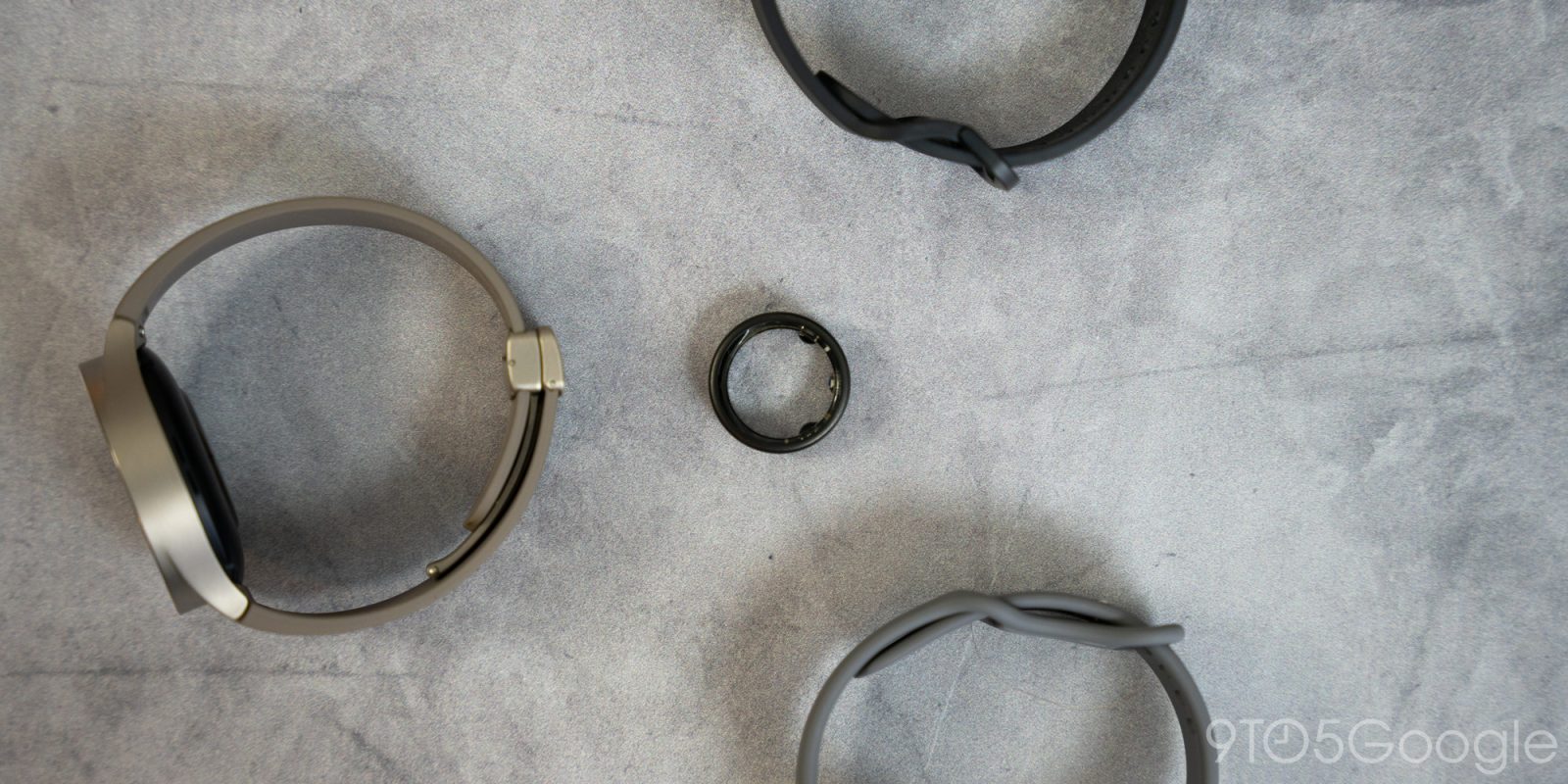
The Oura Ring is currently in generation three and brings an impressive set of features for an ultra-thin wearable, but right on its heels is Samsung’s own version – the Galaxy Ring. The Galaxy Ring is going to have to be almost perfect to be a viable replacement for the Oura Ring.
We’ve gone over all of our favorite features in our Oura Ring review. It currently holds the top spot as the best smart ring out there, but that’s really only because the Oura Ring is the only adequate health-tracking ring around.
That might not be the case for too long, however. Samsung has made it clear that it’s working on the Galaxy Ring, and repeated leaks have offered up some important information.
What we expect from the Galaxy Ring
The Galaxy Ring is expected to come in three colors – black, silver, and gold. From what we’ve seen in teasers and in person, the finishes are all glossy, which will be hard to maintain long-term and keep away from heavy scratches. On the other hand, the Stealth finish Oura Ring I have has stood up to a beating without showcasing a single scratch.
The Galaxy Ring is also supposedly going to have a battery life of around five to nine days, which beats out the Gen 3 rings from Oura on paper. When that information was uncovered, it was also noted that Samsung was “working on” getting the Galaxy Ring to play nicely with Android phones beyond its own Galaxy lineup. It could be a big bummer if other phones like the Pixel or OnePlus devices couldn’t use the ring. Even if they could, it would also be rather upsetting to see limited features available because of the variations in Android.
We know Samsung is expecting a high demand for the Galaxy Ring, as it’ll be the first fitness tracker in the format from a widespread and well-known brand. As for the price, there’s no word. It’d be hard to expect the ring to surpass the cost of the company’s Galaxy Watches at around $300 or so, but other smart rings come in at that cost. Essentially, that means it could cost anything from $200 to $400.
Oura’s health suite will be hard to beat
The Galaxy Ring has the backing of Samsung, obviously. And with that comes a decent health suite of features from the Galaxy Watch. Sasmung has even noted that the Galaxy Ring will come with certain features like a “Vitality score,” which will likely be something of a readiness measure to give you a rough idea of where you are at for the day.
That’s all well and good, but the current closet of features that Oura offers in its admittedly pay-to-play app is rather impressive – like, really impressive.
The Oura app is split into five different sections, each with a slew of data points and graphs that give you a targeted idea of your health metrics. The main home page shows you everything you need to see at a glance, from readiness to sleep and even your resilience score.
Beyond that page, four more pages are available with much more in-depth information – Readiness, Sleep, Activity, and Resilience. Each is powered by vitals taken from the ring itself, like your heart rate and blood oxygen. With that, vitals are tracked throughout the day and sent through several different algorithms that can change each of those page’s results.
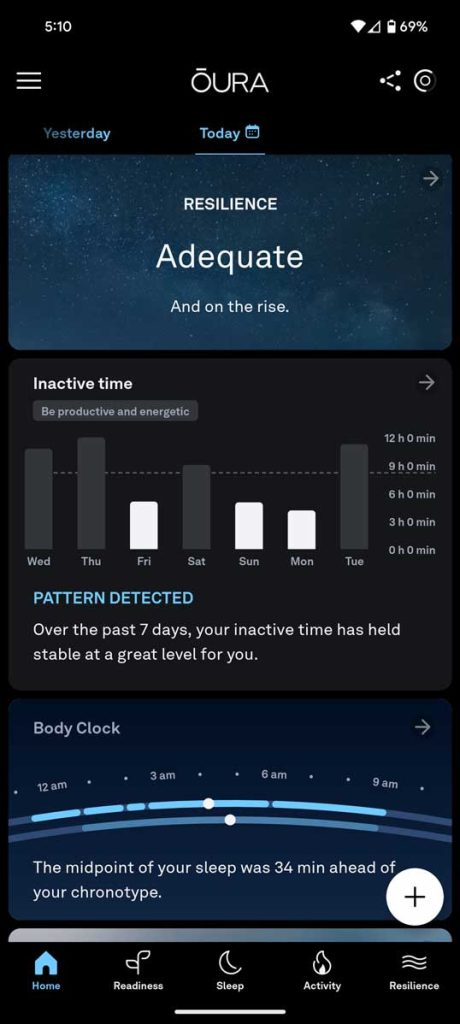
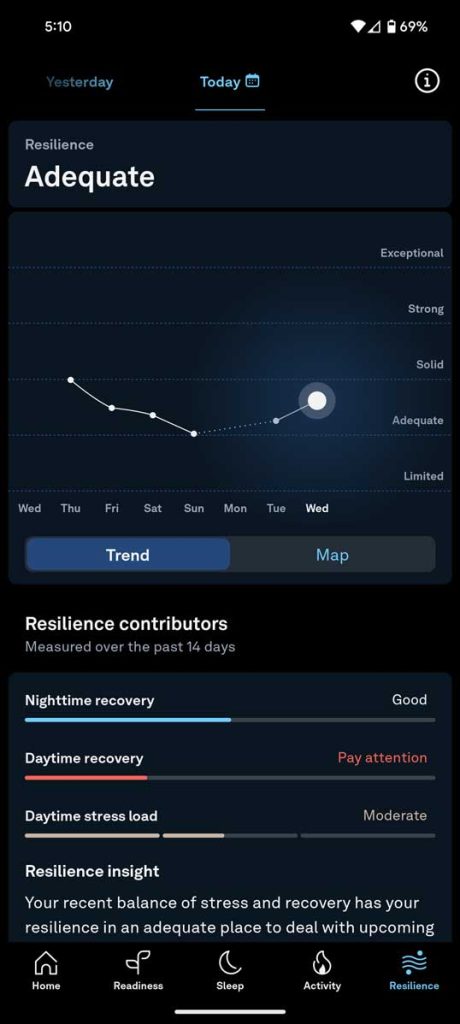
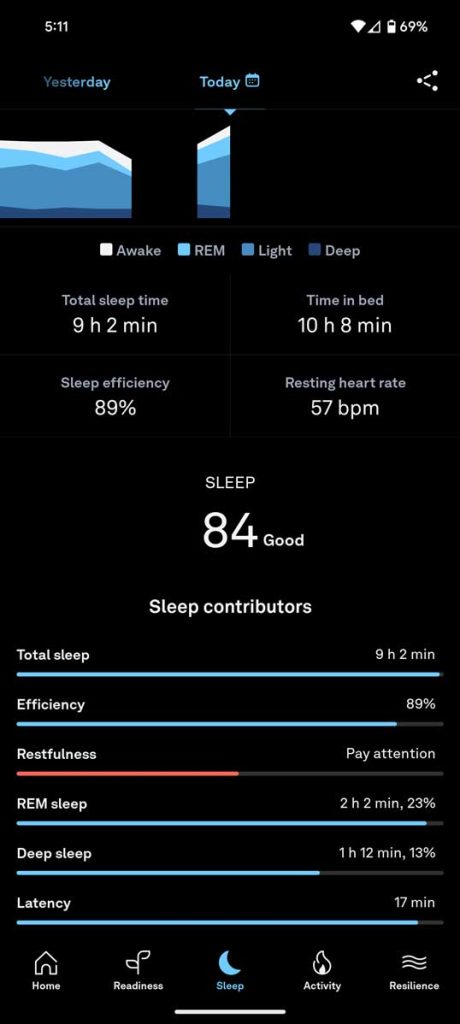
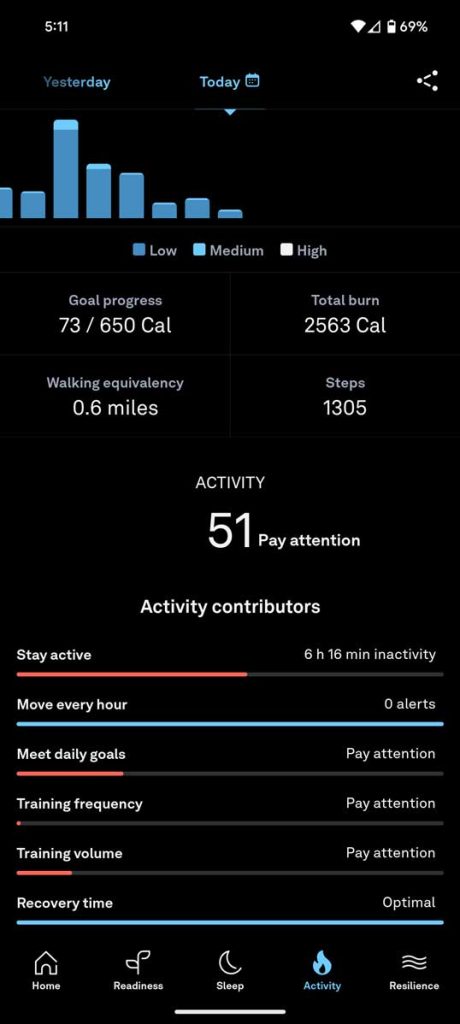
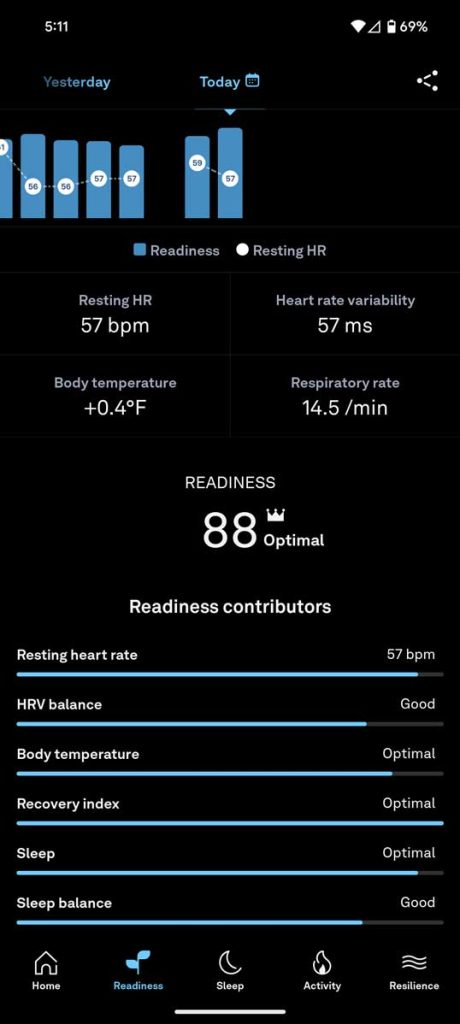
The other big benefit that sits in Oura’s court is the company’s record with updates and feature rollouts. Since I’ve been using my model at the beginning of the year, Oura has released three or four new features, including cadmium system tracking. On top of that, the company has a new labs feature that lets users opt-in for in-progress releases. When Samsung releases new health features, it usually sits behind an update to its flagship devices. Those tend to happen every few months.
A lot of this is echoed by Tom Hale, who had this response when I inquired about Oura’s stance on competition from companies like Samsung:
New players entering the space is validation for the category and drives us to aim higher to serve our members and community. Since our founding over a decade ago, we’ve invested relentlessly in service of creating the best smart ring that gives every body voice. Our members span from Gen Z to Boomers, from pro athletes to those seeking to improve their sleep and health, from women tracking their cycles to those who want to better manage their stress. We release new features regularly, and have the strongest IP portfolio—in both hardware and software—for the smart ring form factor, with hundreds of granted patents, pending patent applications, and registered trademarks.
It would take a much longer article to get into all of Oura’s features, and we’ve hit a lot of them in the full review. However, the important point is that Oura is packing a heavy feature set. From what I’ve experienced in the Galaxy Watch’s Wearable app and with other huge OEMs’ own fitness apps, I don’t have a ton of hope that Samsung will provide nearly the same experience. It’ll no doubt be good, but it may not be as in-depth.
We’ve seen it time and time again: big OEMs just don’t put as much work into their companion programs that pair with well-selling devices. That’s why brands like Whoop have taken off; it isn’t hindered by a massive company that can’t dedicate a big enough team to the fitness side of things, which is my opinionated assumption on why we don’t see as many features on some releases.
That’s not to say Samsung won’t develop a good product. In fact, I think the Galaxy Ring will offer a pretty good experience in battery life and overall vital accuracy. In app features, I don’t think it can take on Oura as things sit right now.
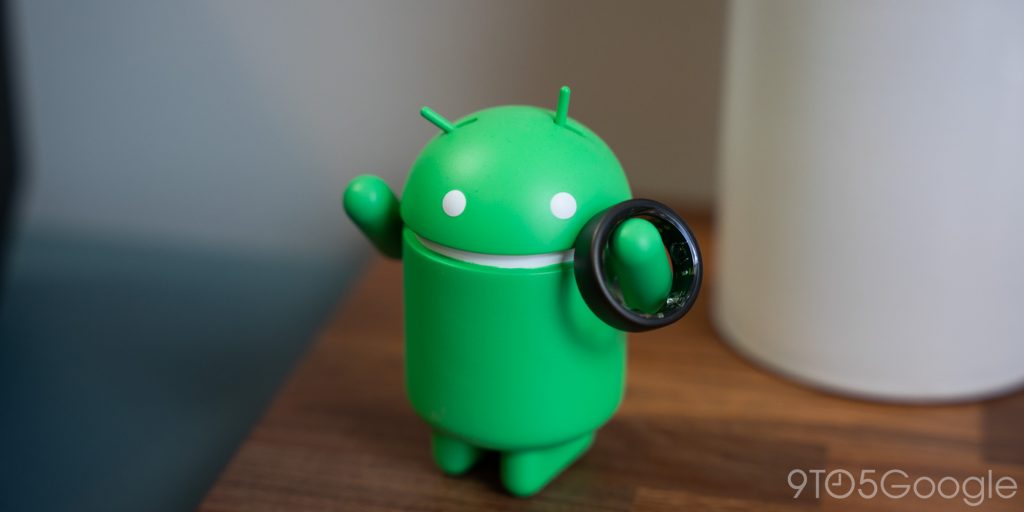
That isn’t going to stop the Galaxy Ring from selling well, though. I don’t see the Galaxy Ring hiding its features behind a $6/month fee like Oura, and I don’t see its users complaining about the features it does have. It will also have the advantage of utilizing the Galaxy Watch series to provide more comprehensive vitals, something I find a little cumbersome having started to wear the Oura Ring to avoid loading my wrist down with a bulky watch while sleeping.
The Galaxy Ring is set to fully launch around July, which is just around the corner. Again, no pricing is known, but I would expect to see it sit somewhere between $200 and $400. If Samsung can provide a comprehensive app experience with frequent updates, it might be able to compete with the Oura Ring. In any case, I’m excited to see this fitness tracker space grow and get better. It’s a form factor that deserves development.
FTC: We use income earning auto affiliate links. More.







Comments